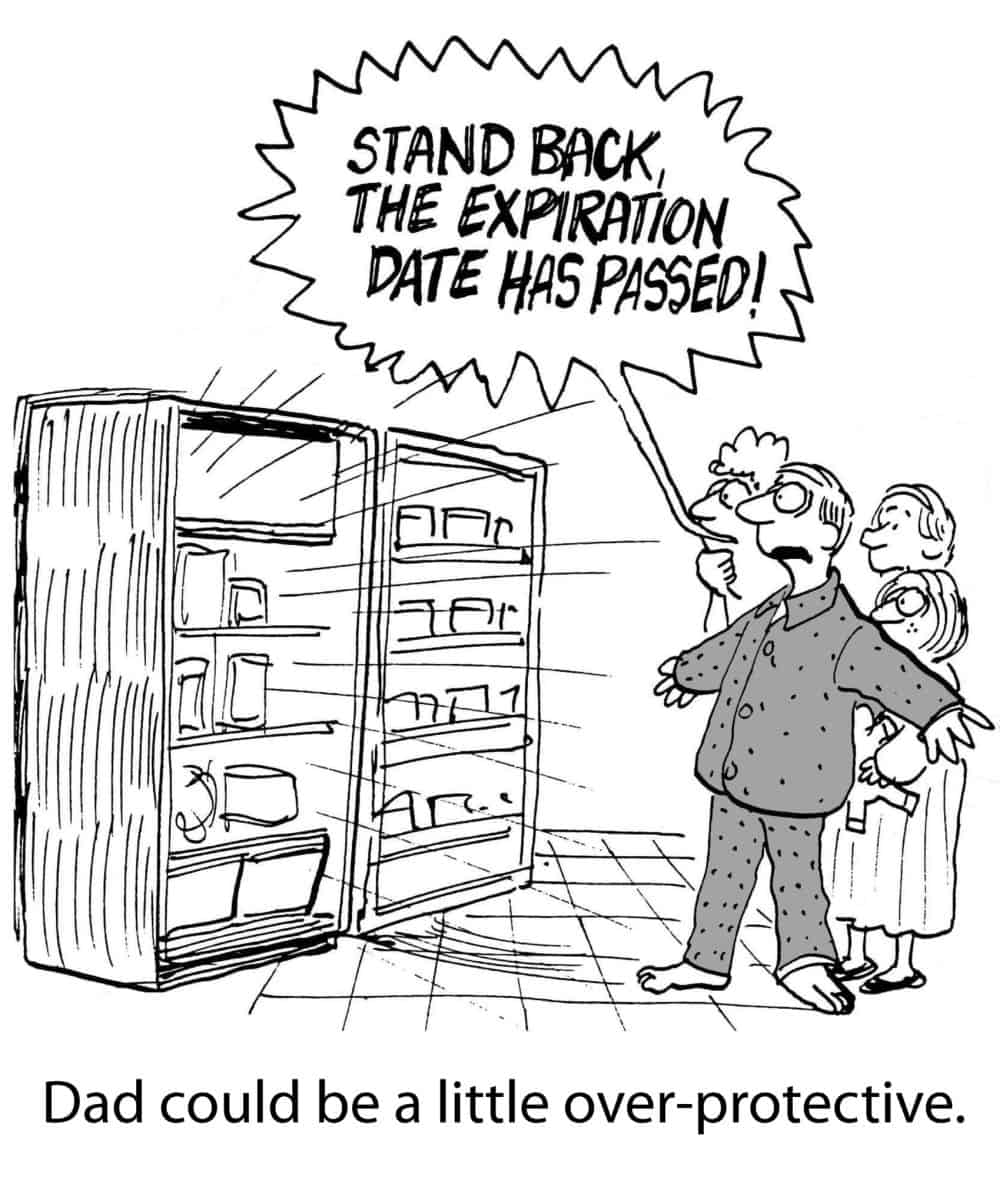 In case you’re contemplating some spring cleaning, you may want to take on the task of organizing your pantry and refrigerator. There’s a good chance you’re buying food you probably already have in your kitchen (especially if it’s unorganized) — just hidden in the back or under other products. On the other side, you may have “expiration police” in your household. Those who refuse to consume anything expired and are quick to toss anything “old” in the garbage. They’re always the ones searching for an expiration date on every package.
In case you’re contemplating some spring cleaning, you may want to take on the task of organizing your pantry and refrigerator. There’s a good chance you’re buying food you probably already have in your kitchen (especially if it’s unorganized) — just hidden in the back or under other products. On the other side, you may have “expiration police” in your household. Those who refuse to consume anything expired and are quick to toss anything “old” in the garbage. They’re always the ones searching for an expiration date on every package.

It turns out, they may the ones committing a crime — the crime of throwing out perfectly good food and, therefore, wasting money. Many of those tiny little expiration dates refer to the quality of the item, not its safety for consumption.
It seems most of us are confused about expiration dates. Every year, it’s estimated that the average American family of four loses $1,500 to uneaten food — oftentimes because of the expiration date on the package. (Can you imagine having an extra $1,500 every year?)
Even the United States Department of Agriculture (USDA) notes that food remains safe to consume after the expiration date, as long as it’s been handled properly and shows no signs of spoilage.
However it’s important to note cans that are dented, rusted, leaking or bulging should definitely not be consumed, because the contents could be tainted with bacteria such botulism.
Did you know the Food and Drug Administration (FDA) does not require food manufacturers to list expiration dates on products? The only exceptions are infant formula and baby food. Otherwise, in most states, it’s completely at the discretion of the manufacturer.
What does the date mean?
Here are the most common terms found on packaging and what each one means:
Best If Used By or Best Before
Established by the manufacturer, the term refers to the food or beverage’s quality. Until the date listed, the food is at its peak quality. After the date, the food or beverage is still safe to consume. However, the flavor and quality may not be as good. Of course, the longer you wait, the quality will diminish accordingly.
Use By
The term is a little more definitive, meaning the food should be consumed by the date stamped on the package. Past the date, you should be cautious and just toss it for safety.
The term is mostly used for perishable foods, including vegetables, fruits, meats, poultry, fish and dairy.
Consuming these foods past the expiration date can make you sick. The life of these foods can usually be extended by a few months, if you freeze them by the date on the package.
Sell By
The term is intended for retailers, as a marker for when the product needs to removed from the shelf. Most of these items are safe to eat or drink afterward — sometimes for weeks.
However, this is the term that causes the most confusion (and waste) for consumers because most read it as an “expiration date”, believing the food is no longer good past the date.
Storage recommendation
You should store commercially canned foods and other shelf stable products in a cool, dry place.
Never put them above the stove, under the sink, in a damp garage or basement or any place exposed to high or low temperature extremes.
If you do so, according to the USDA they are safe indefinitely. However, over time, most canned foods will change in taste and texture and may eventually lose nutritional value.
Get organized
One of the best ways to save money on your groceries is to organize your kitchen. Food is less likely to be trashed, when older items are used first.
If you keep your pantry and refrigerator organized, you can easily use what needs to be eaten next before it “goes bad.”
This is a trick bargain hunters have known for years — just treat your pantry as your own little grocery store.
When you restock a household staple, simply move older product to the front and put the newer items in the back.
That way, when you pull a can, bag or box for a meal, you know they’re in chronological order by expiration date.
The biggest mistake is just stocking new items on top of old ones. That’s how you end up with a can of beans from 2009.

Save money
Expiration dates can be a gold mine for bargain hunters. Many retailers drastically reduced the price on perishable and non-perishable products about to expire. You just have to know where to look for them.
Find the clearance spots at your favorite grocer, as they usually keep them in the same areas. (You can also check the shelves for clearance tags.) Then, every time you shop, check each area for the latest bargains.
You can usually find lots of deals in the meat and dairy departments. If an item is about to expire that same day or in the next few days, most grocers would rather sell it than throw it away.
As a result, you’ll find deep discounts — often 50% off or more. (If you’re lucky, you can sometimes find items at 75% to 90% off.)
The key is to know your family will consume it immediately, especially with dairy products. Although, a big family with lots of kids can easily go through a gallon of milk within in just a day or two!
A good discount can also help dictate your dinner plans. If you find a great deal on ground beef or chicken, you can easily make hamburgers, tacos or fajitas that same night.
Discounted meat also offers a little more flexibility because you can easily freeze it to extend its usability. If you find big savings, you might consider stocking up your freezer.
And don’t be shy. If you find a product on the shelf about to expire, ask the store or department manager if they’d be willing to reduce the price. You’d be surprised at their response. My tip is to be extra polite. Being rude or demanding won’t get you too far.
You’re actually helping them keep their shelves “fresh” and from potentially losing money on an expired product. Make the meat and dairy department managers your friend! This trick also works well in the floral department.
Being a good bargain hunter takes a little confidence and work, but it’s worth it. You may not always get a “yes”, but it never hurts to ask — especially when it comes to saving money.
More resources
Given food waste is an important issue for society, especially because its ramifications affect all of us, one of the objectives of the USDA is to reduce food loss and waste.
They’re “stocked” with lots of helpful information for the everyday consumer on food date labels, storing food properly and more — click here.